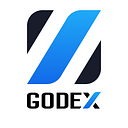KYC: the scourge of the industry or the sacrifice for salvation?
Recently, more and more exchangers and cryptocurrency related services claim that they no longer support the anonymity of their users. Is such a ”way out of the shadow” a really necessary measure, and can the cryptocurrency industry develop further, while remaining both anonymous and legally transparent? Let’s see.
What does it stand for
Probably anyone who has had experience with cryptocurrency, faced with such things as AML and KYC. AML stands for ”anti-money laundering“, KYC means ”know your customer”. These concepts are introduced in Directive (EU) 2015/849 of the European Parliament and of the Council of 20 May 2015 on the prevention of the use of the financial system for the purposes of money laundering or terrorist financing.
Compliance with these directives is necessary for those services that operate with cryptocurrencies in conjunction with fiat money. We are talking about both cash and non-cash form, including the use of the most popular payment instruments such as Visa and MasterCard, SWIFT payments, etc. These are undoubtedly important and necessary measures to counter terrorism and illegal financial transactions. But how these directives are applied sometimes raises questions.
“I’m an honest citizen with nothing to hide”
There are lot of stories on forums about how services block users funds, referring to allegedly suspicious transactions. Those users are required to provide identification documents and proof of ownership of the cryptocurrency. These requirements are imposed when the funds have already been transferred to the company’s wallets, and thus, they remain blocked until the user passes KYC procedure completely.
No one is going to explain to you why your coins are marked as “suspicious” and hence you are just put in front of the fact. You may have to provide ID or relevant documents, proof of residence, bank account statement, a couple of photos, and finally, proof of ownership of questioned funds (trading history, mining, etc.) This procedure can last indefinitely, because support services don’t always have time to respond quickly to such requests. A quite dubious adventure, isn’t it?
It’s just because
The risk group also includes users of anonymous coins such as Monero, Cash. The anonymity feature of the coin itself is stigmatized as a criminal by some exchangers. Despite the fact that nothing prevents them from accepting those payments. The community is actively debating, for example, why not just make delisting of coins instead of continuing to freeze unsuspecting user’s funds.
One may treat it differently, but these are the realities and new rules of the game on the field of jurisdiction of the European Union and the United States, which are increasingly toughening requirements for its citizens and legal entities. There are no questions for those companies that warn users about identification requirements in advance. But when the service, which previously positioned itself as anonymous and with no-registration, suddenly puts such requirements, it really grinds my gears.
So what to do?
You can always use decentralized exchangers, but what if you are used to enjoying such advantages as no registration, easy experience and bonuses from exchanges?
Godex.io is one of the few exchangers who believes that KYC rules contradict the original idea of anonymity in the cryptocurrency world. The company does not require any data from its users. Guided by the presumption of innocence and the AML policy assistance, we simply return the funds to the sender if these funds looks suspicious to us. In today’s realities, this principle may seem deviant, but we put privacy and the best service for our users in the first place. If you want to use a service that respects your privacy, Godex.io is the best choice for you.
Join us on Twitter
